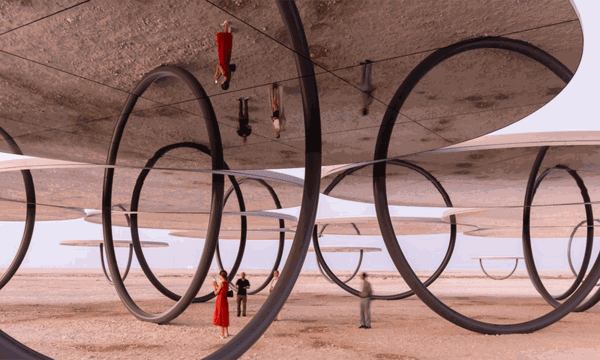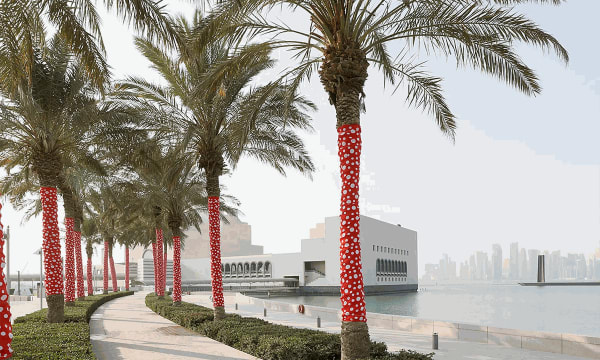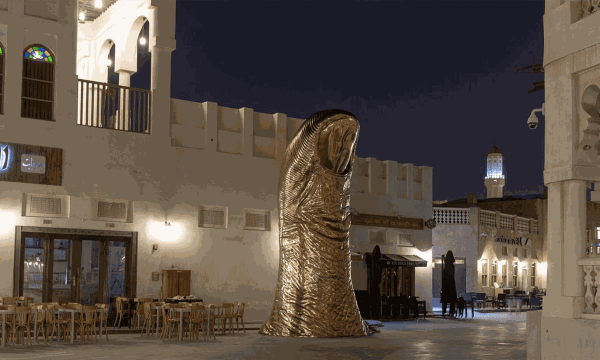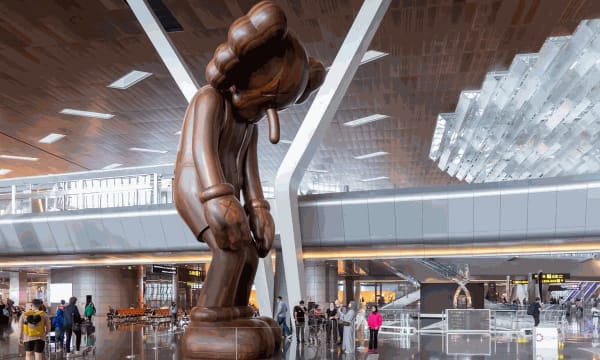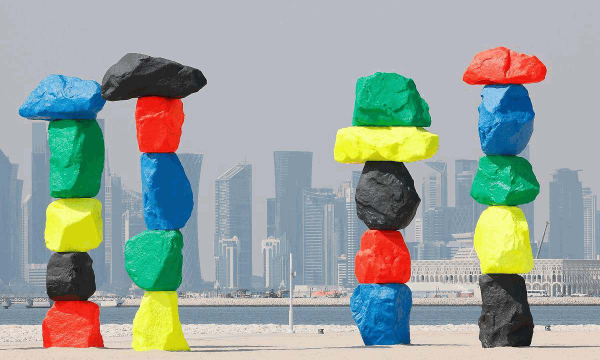As a million and a half football fans are expected to descend upon the Persian Gulf for the upcoming FIFA World Cup starting November 20, Qatar gives their new public art commissions the finishing touches.
Art and Football might not be immediately associated, however, since its winning bid in 2012, as hosting nation of the tournament, Qatar has been forging its worldwide cultural recognition and role as one of the leading art destinations of the region.
Various museums have proliferated around the capital, and in the past decade, the country has been transformed into an open-air museum, currently comprising more than a 100 public art commissions, 40 of which revealed just this year. Both national and International artists were invited to create site-specific works for the project, among the exhibited are the likes of Jeff Koons, Ugo Rondione, Louise Bourgeois, Yayoi Kusama and Olafur Eliasson.
Moreover, each stadium has commissioned regional artists to create public installations to embed the complexes in local culture for, as the organisation has put it: “the whole world to see”.
Sheikha Al-Mayassa bint Hamad bin Khalifa Al-Thani, the chair of the Qatar Museums has said in a statement, the project is “one of our most prominent demonstrations of cultural exchange, where we present works from artists of all nationalities and backgrounds”. Al-Mayassa is the sister of Qatar's ruling Emir, she has been the catalyst of cultural development in the country. As a leading patron of the arts and collector, the Sheikha is set on developing Qatar’s cultural identity. It is estimated the small Gulf region spends over 1 billion a year on the arts, making Sheikha Al-Mayassa “the undisputed queen of the art world,” according to Forbes.
Qatar is becoming an unquestionable artistic tour-de-force. However, much of its greatness has been overshadowed by spiralling controversy. The country will be the first in the Middle East to host the prestigious football tournament in its 92-year history. Having never played in any of the previous 21 editions of the World Cup, Qatar raised a few eyebrows in the face of its selection.
Qatar has strict anti-homosexuality laws, reductive legislation towards women and rigid behavioural regulations. Additionally, reports of inhumane working conditions have loomed large around the estimated 30,000 migrant workers building the necessary infrastructures ahead of the 2022 World Cup. Protests and symbolic gestures have amounted from football fans and teams. Under the prying eyes of the World, sponsors, players, fans and artists alike walk the fine lines of ethics.
Plans are vast for the next few years in the country, with several more museums, foundations and cultural ventures opening up, spanning all creative areas from art to fashion. Hopefully, soon their human rights endeavours will match their artistic ones.
